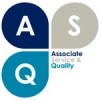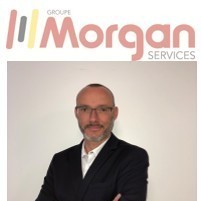Every year since 1996, World Day for Safety and Health at Work (WDSH) has been celebrated on 28 April (this year it is a Monday), highlighting the crucial importance of preventing occupational accidents and diseases worldwide. This day offers a unique opportunity for key stakeholders – governments, employers, workers and their organizations – to work closely together to promote a culture of safety and health in the world of work. It is also an opportunity to commemorate workers who have died or been injured at work. This makes this day all the more important in its dimension of prevention and reduction of work-related risks.
The theme of World Day for Safety and Health at Work 2024 was « Impacts of climate change on safety and health at work« . The theme of World Day for Safety and Health at Work 2025 has not yet been announced.
The European Context for World Day for Safety and Health at Work
Within the European Union, WDSHW holds particular significance, given the strict health and safety at work (HSW) standards imposed by various regulations and directives. These standards aim not only to prevent accidents but also to combat occupational diseases, which can have devastating effects on workers’ quality of life and productivity.
Preventing Work-Related Diseases
The prevention of occupational diseases is a major challenge in HSW. It involves a proactive approach to identify and assess risks, then implement preventive measures. In the EU context, legislation such as the Framework Directive 89/391/EEC provides the legal basis for the assessment and prevention of occupational risks. However, looking at the statistics, in France and Luxembourg
, for example, although data from the ILO indicates that occupational diseases kill more than six times more than accidents, it appears that work-related diseases are both under-reported and under-recognized. Therefore, they are not visible enough and are predominantly managed by health insurance schemes instead of accident insurance, and prevention actions are not really encouraged.
Innovations and Best Practices
European companies are encouraged to adopt innovative strategies for the prevention of work-related diseases. This can include the use of new technologies to monitor working conditions, implementing employee wellness programs, and ongoing training on risks and preventive measures.
The Importance of Collaboration underscored by World Day for Safety and Health at Work
WDSHW also underscores the importance of collaboration among various stakeholders. The active participation of workers and their representatives is crucial for identifying risks and developing effective prevention strategies. Moreover, the exchange of good practices and knowledge within the EU can contribute to improving HSW standards.
Conclusion
WDSHW is more than an annual celebration; it is a call to action to strengthen the prevention of occupational diseases. By focusing on prevention, adopting innovative approaches, and fostering collaboration, we can work together to create a safer and healthier work environment for all Europeans.
Call to Action
World Day for Safety and Health at Work: A Pillar for the Prevention of Occupational Diseases. We encourage companies, workers, and policymakers to use this day as a springboard to renew their commitment to health and safety at work, focusing particularly on the prevention of work-related diseases. Together, we can build a future of work that values and protects our most precious asset: our health.
Safety and health officers, occupational health services, supervisory authorities, accident insurance, and external consultants are allies for companies in this fight!









